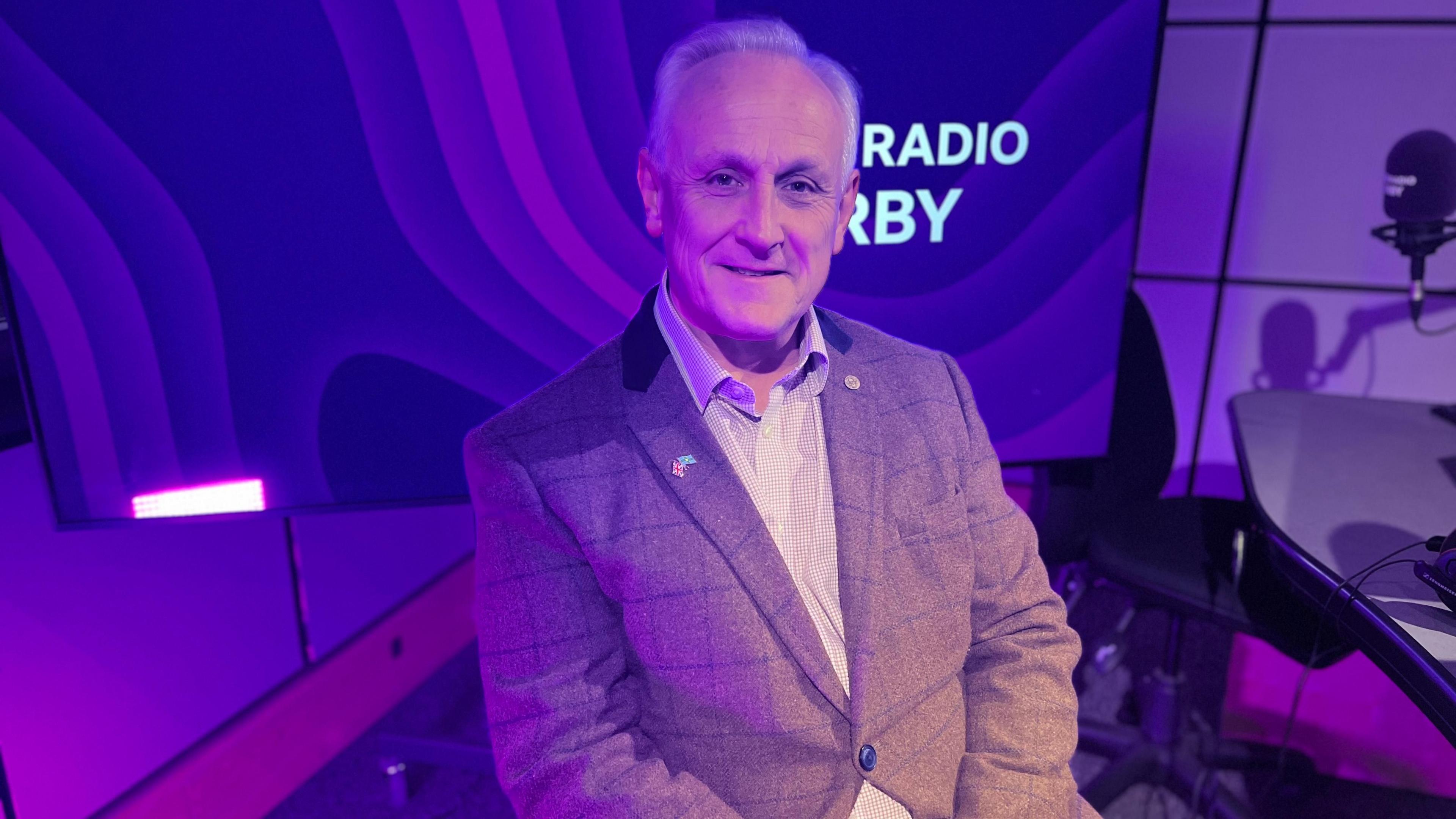Special needs overdiagnosed, says council leader

Alan Graves said there should be a debate over whether too many children were receiving council-funded support for special needs
- Published
Parents have accused the leader of Derbyshire County Council of "ignorance" after he claimed children were being "overdiagnosed" with special educational needs.
Alan Graves, who began leading the council when Reform UK took control in the local elections in May, also suggested some schools encouraged parents to apply for things their children did not need.
There were 6,790 children in Derbyshire with education, health and care plans (EHCPs) in place in 2024 but that number had risen to almost 8,000 by the spring of this year.
The authority's special educational needs and disabilities (SEND) services are currently being monitored by the government after a damning Ofsted report last year.
The council's costs to support children in special schools rose by £15m to about £38m in 2024-25, according to council documents.
Speaking to the BBC, Graves said he agreed with the party's national leader Nigel Farage, who previously said there was a "massive" overdiagnosis for "general behavioural disabilities".
"I personally think there are too many people in the [SEND] system," Graves said.
"I think there are reasons for that and it's to do with schools getting extra money for dealing with that.
"Most people are just about on the spectrum but they're coping."
Graves said while many children did need support, there was an "ideological" element to the issue.
"What I'm saying to [parents] is if you've applied for it, the council will deal with that situation," he said.
"At the end of the day, we have to deal with things within a legal framework. That doesn't mean we shouldn't have a discussion about how things should be.
"We need to make sure, as a local authority, as a government, that we're spending the money in the right places.
"Sometimes people have to cope with those issues. I possibly feel that maybe even I'm on the spectrum somewhere... but I've never had any help with it."
'Ignorant myth'
Mel Merritt, head of policy and campaigns at the National Autistic Society, said Graves was "spreading misinformation".
"Children with special educational needs and disabilities, including autistic children, are not being overdiagnosed," she said.
"They face huge delays and long fights to get the most basic support."
Graves acknowledged he did not have any evidence for his claims on overdiagnosis, but said the Labour government's intention to reform the SEND system showed there was an issue.
Some parents in Derbyshire were critical of his comments.
Nick Green, a retired university lecturer whose son Fin missed two years of school because of problems accessing support for autism and mental health difficulties, said the claims were "a myth based on ignorance".
"I started teaching in 1993," he said. "Autism was rarely diagnosed, knowledge was limited and provision poor.
"The result was disruptive pupils, poor learning, emotionally traumatised children and social difficulties - not to mention huge challenges for parents.
"Since that time, medical science has advanced, diagnosis has improved and so has provision for those needing it.
"This means that needs are met, resulting in better attendance, achievement, stability and success - not just for students with conditions such as ADHD [attention deficit hyperactivity disorder] and autism, but for all pupils."
Emma Wheeler, who has faced lengthy delays seeking to get her daughter Phoebe support for her autism, called the comments "terrifying".
"As parents, we shouldn't be second guessing the quality of our children's futures," she said.
"Comments like this not only damage the public's perception of what it's like to have additional needs, but how hard we have to fight to protect what they are entitled to."
SEND support 'lottery'
The Education Policy Institute charity said there were a combination of factors contributing to rising numbers of SEND pupils.
These include scientific advances, allowing children born with disabilities to lead healthier, longer lives, increased poverty and increased diagnosis of some conditions.
But Jo Hutchinson, director for SEND and additional needs at the institute, said many children were still falling through gaps in the system.
"Our research finds that children are missing out on the help that they need," she said, citing a "lottery" for SEND support in schools across England.
"It is time for a renewed focus on the preparation of school staff to understand and support children's social and emotional needs as well as their academic development."
Get in touch
Tell us which stories we should cover in Derby
Follow BBC Derby on Facebook, external, on X, external, or on Instagram, external. Send your story ideas to eastmidsnews@bbc.co.uk, external or via WhatsApp, external on 0808 100 2210.
Related topics
- Published11 July

- Published26 November 2024
